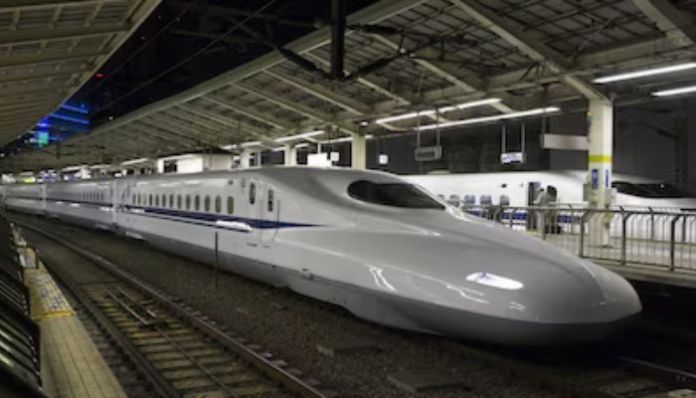Three giant Tunnel Boring Machines (TBMs), needed for the construction of underground section of Mumbai-Ahmedabad high-speed bullet train corridor are stuck at a Chinese port. The machines are vital to excavate a 21-km-long underground part of the high-speed rail corridor, from Bandra-Kurla Complex (BKC) to Shilphata, featuring India’s first undersea rail tunnel under Thane Creek.
The TBMs were manufactured in Guangzhou by the German tunnelling firm Herrenknecht. Two were slated to arrive in India by October 2024, while the third was supposed to have arrived earlier this year. Yet, till now, Chinese port authorities have not provided clearance, and no official reason for the delay has been made public.
Matter escalated to the External Affairs Ministry
Worried that the project could be delayed, the Ministry of Railways in India has approached the Ministry of External Affairs. The matter is now being taken up through diplomatic channels
This section of the bullet train line is among the most technically challenging, particularly the 7-km tunnel under Thane Creek. Delays in the arrival of the machines would affect progress, though officials insist the overall project timeline remains unaffected.
Post-Galwan scrutiny of Chinese goods
Following the latest Galwan Valley clash between Indian and Chinese troops in 2020, India further strengthened its Chinese investment and import policies. A few contracts of Chinese firms were cancelled, and an effort has been made vigorously to cut back on Chinese equipment dependence.
Before 2020, TBMs from China had found usage in the Mumbai Metro and coastal roads. However, newer projects, such as the Thane–Borivli tunnel, have taken to Herrenknecht-made machines.
India’s biggest TBM is stuck
India’s biggest TBM, which got stuck in China, is one of them. Its cutter head is 13.56 metres wide—almost double the width of the ones used for metro rail tunnels. It is designed to cut through complex terrain, including soil, rock, and mixed ground, with extreme precision.
Work has begun without TBMs
Afcons Infrastructure Ltd, the company handling this stretch, is moving ahead with initial works. It won the ₹6,397 crore contract in June 2023 and has a timeline of just over five years to complete it.
Work on launching and retrieval shafts is underway—these include deep vertical shafts at BKC (36m), Vikhroli (56m), and Sawli (39m), and a 42-metre inclined shaft at Ghansoli.
The tunnel will descend up to 114 metres below Parsik Hill and needs to run through wetlands, residential areas, and water bodies. It’s a high-risk, high-reward part of the bullet train corridor.
Though NHSRCL and Afcons have not made a public statement, sources indicate attempts are being made by all concerned to settle the matter. For the time being, the construction goes on—but the clock is ticking. The bullet train schedule might get affected if the TBMs don’t depart China shortly.






